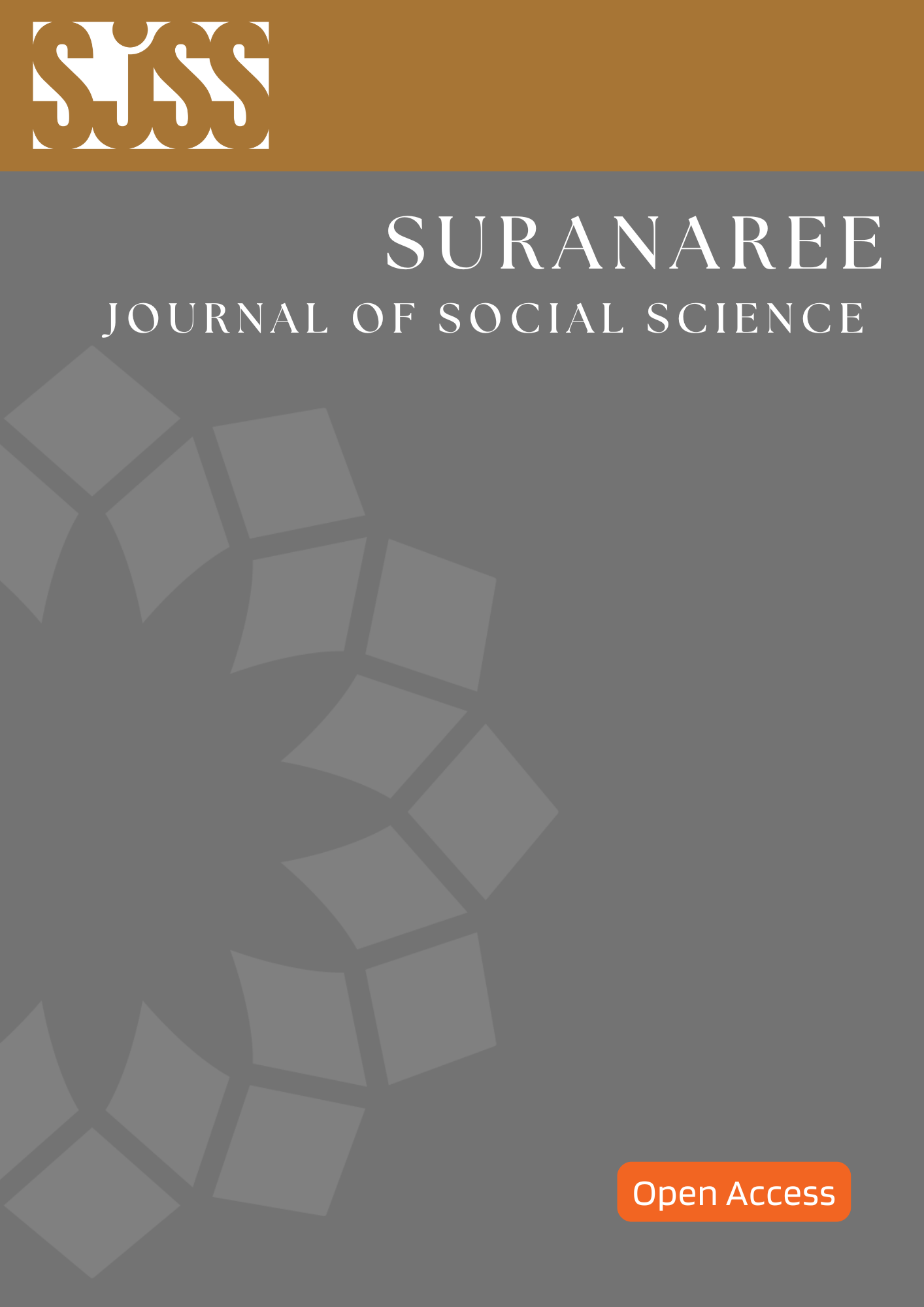Effectiveness of Super-Leadership Development Program for Construction Project Managers in Engineering Consulting Business in Bangkok
Main Article Content
Abstract
This research is quasi-experimental research. Its objective is to study the effectiveness of super-leadership development program for construction project managers (PMs) in engineering consulting business in Bangkok. Fifty PMs were divided equally into experimental and control groups. Data were collected using a super-leadership questionnaire in a pre-test prior to participating in the program, a post-test immediately after the participation and a follow-up test one month later. Results showed that in the post-test PMs received program had super-leadership higher than their super-leadership in the pre-test and higher than PMs in the control group with statistical significance. Also, in the follow-up test PMs received program had super-leadership lower than their super-leadership in the post-test, still higher than their super-leadership in the pre-test and had no statistical significance with the control group. Researcher suggested long-term methods in strengthening and developing super-leadership in order to make the persistence of super-leadership.
Article Details

This work is licensed under a Creative Commons Attribution-NonCommercial-NoDerivatives 4.0 International License.
References
Adrian, J.J. (1983). Building Construction Handbook. Virginia: Prentice-Hall.
Baccarini, D. (1999). The Logical Framework Method for Defining Project Success. Project Management Journal. 30(4): 25-32. https://doi.org/10.1177/875697289903000405
Bamrungchit, M., & Na Wichian, S. (2015). The Analysis and Synthesis of Super Leadership Factors in Organization. Journal of Humanities and Social Sciences Khon Kaen University. 32(1): 21-46.
Barbour, Rosaline S., & Kitzinger, J. (1999). Developing Focus Group Research Politics, Theory and Practice. London: Sage Publications Limited. https://doi.org/10.4135/9781849208857
Boonyaperm, T., Werarakschit, C., & Sathaworawong, S. (2001). Teaching Materials Accounting and Finance for Construction Unit 1-8 (1st ed.). Nontaburi: The Office of the University Press Sukhothai Thammathirat Open University.
Burnard, P. (1996). Acquiring Interpersonal Skills: A Handbook of Experiential Learning for Health Professionals (2nd ed.). London: Chapman & Hall. https://doi.org/10.1007/978-1-4899-7015-2
Kolb, D.A. (1984). Experiential Learning: Experience as The Source of Learning and Development. Englewood Cliffs: NJ: Prentice Hall.
Manz, C.C., & Sims, H.P. (1989). SuperLeadership: Leading Others to Lead Themselves. Englewood Cliffs: NJ: Prentice-Hall.
Manz, C.C., & Sims, H.P. (1990). SuperLeadership: Leading others to lead themselves. New York: Berkley Books.
Manz, C.C., & Sims, H.P., Jr. (1991). Superleadership: Beyond the Myth of Heroic Leadership. Organizational Dynamics. 19: 18-35. https://doi.org/10.1016/0090-2616(91)90051-A
Manz, C.C., & Sims, H.P. (2001). The New SuperLeadership: Leading Others to Lead Themselves. San Francisco: Berrett-Koehler Publishers.
Naewtong, P., Naiyapatana, O., & Charoensuk, O. (2019). The Effects of Using Kolb's Experience Learning Activities to Develop Teacher Collective Leadership in Bangkok Metropolitan Schools. Human Resource and Organization Development Journal. 11(1): 112-137.
Noradechanont, S. (2003). A Study of Roles Duties Responsibilities and Problems of Engineering Consulting Firm in Field of Construction Management Project in Thailand. Master’s special research, King Mongkut's University of Technology Thonburi.
Pearce, C.L. (2017). The Future of Leadership: Combining Vertical and Shared Leadership to Transform Knowledge Work. Academy of Management Perspectives. 18(1): 6. https://doi.org/10.5465/ame.2004.12690298
Phumiphan, P., Udomsap, P., & Kanjanawajee, W. (2016). The Result of Self-Leadership Training of Undergraduate Students in Education at Nakhon Ratchasima Rajabhat University. Journal of Humanities and Social Sciences Valaya Alongkorn. 11(1): 337-347.
Roberts, H.E., & Foti, R.J. (1998). Evaluating The Interaction Between Self-Leadership and Work Structure in Predicting Job Satisfaction. Journal of Business and Psychology. 12: 257-267. https://doi.org/10.1023/A:1025067128193
Rosch, D.M., Stephens, C.M., & Collins, J.D. (2016). Lessons that Last: LeaderShape-related Gains in Student Leadership Capacity over Time. Journal of Leadership Education. 15(1): 44-59. https://doi.org/10.12806/V15/I1/R4
Sims, H.P., & Lorenzi, Jr.P. (1992). The New Leadership Paradigm: Social Learning and Cognition in Organizations. California: Sage Publication.
The Consulting Engineers Association of Thailand. (2010). Nature of Professional Engineering Services. [On-line]. Available: http://www.ceat.or.th/2010/index.php/2009-10-12-04-15-49/2009-10-12-04-22-45/2010-03-13-16-13-20.html


